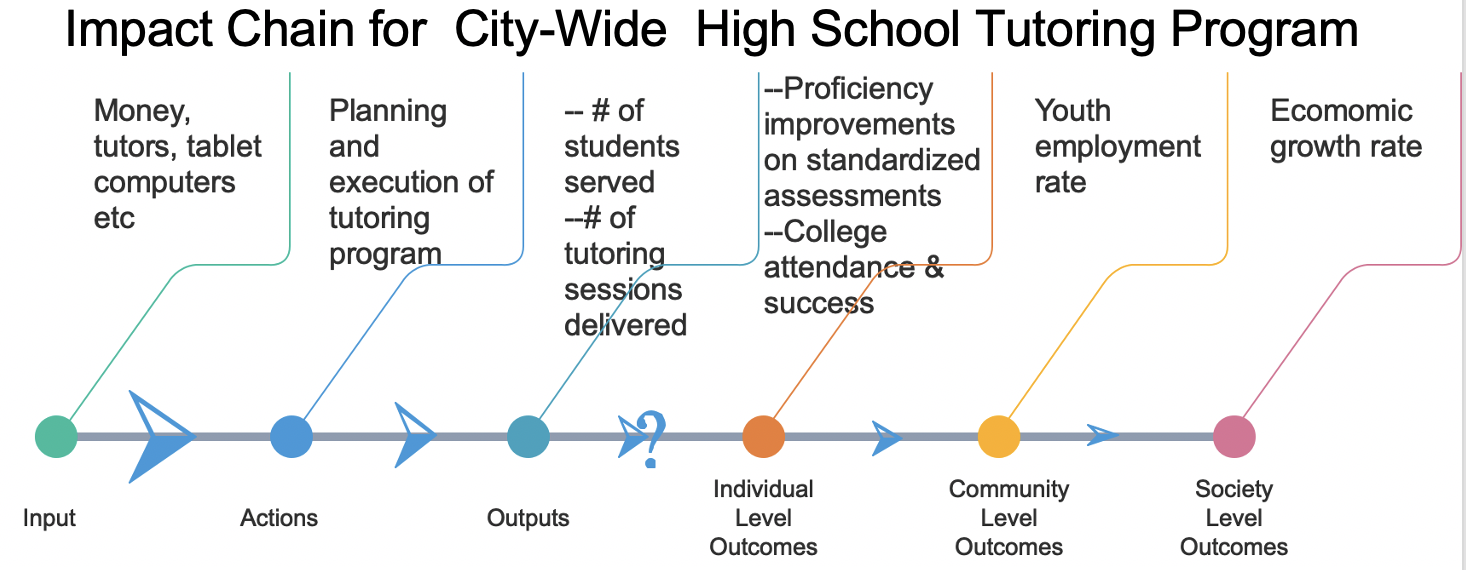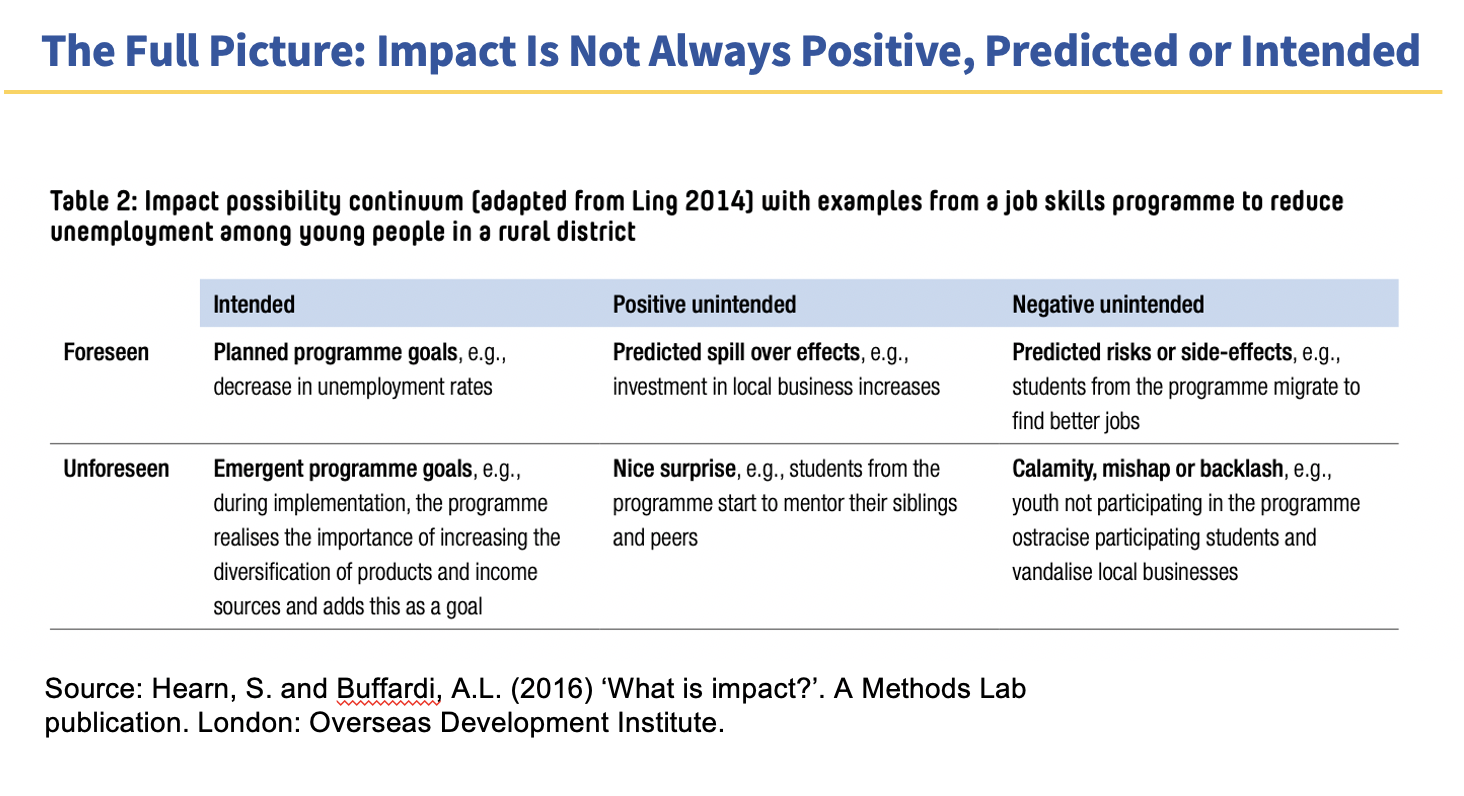Assessing Impact: Getting Aligned About What to Measure and What It Means
Apr 27, 2021Maximizing your impact as a change agent starts with being clear about what “impact” actually means to you…
A lot of us use this term "impact" all the time in our work as change agents--we talk about high impact organizations, high impact funders. But what do we really mean when we talk about impact? And how do we best measure impact on the issues that matter most to us? This challenge is at the heart of our work as change agents.
Whether you are a social entrepreneur or a funder, paying attention to what you are defining as impact and how you are assessing it, is fundamental to maximizing the difference you hope to make in the world.
The video for this post walks through these ideas--here are some highlights:
First Things First: How Do You Define “Impact”?
The good news is that the field of international development has done lots of work thinking about how to define and assess impact. Simon Hearn and Anne Buffardi's paper "What is Impact?" is a great place to start. They review a wide variety of approaches from different agencies working in international development--11 different agencies each with a slightly different definition.
From all of this we can distill a working definition:
Impact: an outcome that can be causally linked back to a specific action or set of actions.
Here's an example:

Four Options for Assessing Impact: Which Is Best For You?
In his book Measuring Social Impact, Alnoor Ebrahim lays out two key questions to consider when it comes to figuring out the best way to measure social impact on the issues that matter most to you, whether you're a social entrepreneur or a funder:
1. How certain are the links in your causal chain?
- Simple?
- Complicated?
- Complex?
2. How much control do you have over the outcomes?
- Direct control?
- Direct influence?
- Indirect influence?
How you answer these questions determines which of four key approaches might be the best fit for assessing impact in your arena. And as many of us have experienced, one of the biggest sources of friction and frustration in the world of social change happens when funders and social entrepreneurs haven't given enough thought to getting on the same page in how they answer these more fundamental questions, let alone how they approach measuring impact.

Don't Miss the Full Picture: Not all Impact is Good
It's also important to appreciate that your good intentions are not enough to guarantee a good outcome.

Some Maxims for Maximizing Impact
- Performance metrics and milestones are most meaningful when causal chain is simple and outcomes easily controlled
- The more complex the causal chain and the more indirect the influence over outcomes, the more proximity, patience and trust you need to truly assess impact: this is the idea of “expeditionary evaluation” we explore more in the video
- Positive intentions are not enough to guarantee positive interventions—but proximity, flexibility and trust go a long way to making course corrections
- Don’t let a fixation on attribution trump opportunity for contribution. This is particularly important for funders--when you get carried away by your own desire to have certainty that your dollars are producing specific impacts out in the world, you can put too much pressure on grantees to attribute impact to their particular efforts. In some cases this reduces impact overall by leading grantees to neglect opportunities to make a contribution to the greater good that can't be so clearly traced back to their particular efforts.
Stay connected with news and articles
Join us to receive the latest news and updates from our team.
Don't worry, your information will not be shared, and you can unsubscribe at any time
We hate SPAM. We will never sell your information, for any reason.

